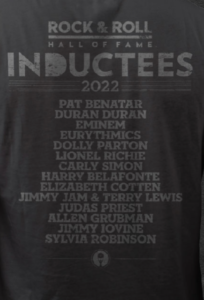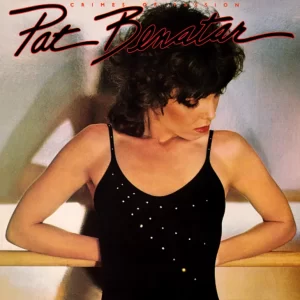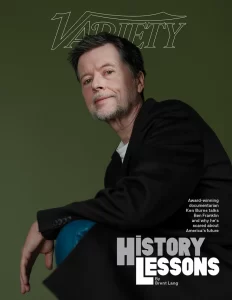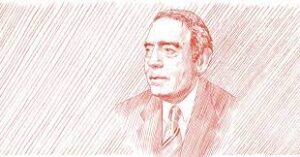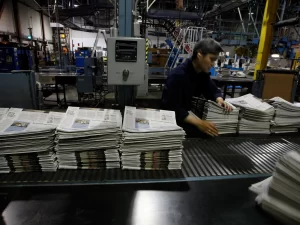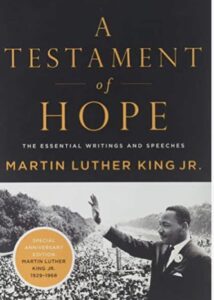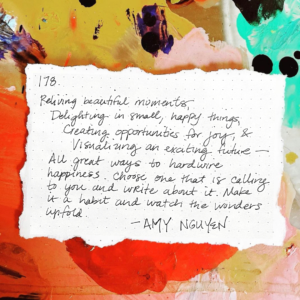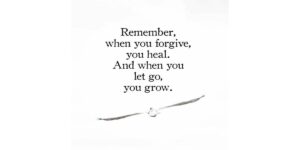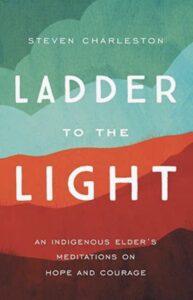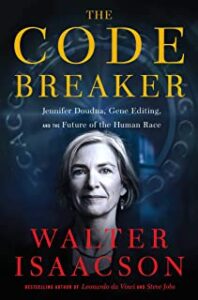Dan Rather
Saturday morning.
May 7, 2022Respite from the tilt toward darkness our planet collectively shares.
Peace.
Compassion.
Love.
Our spiritual compass.
‘It is only with the heart that one can see rightly; what is essential is invisible to the eye.’ -Antoine de Saint-Exupéry.
[My thesis.-dayle ❀]
From poet Pádraig Ó Tuama:
“Friends, there are many things that crowd your attention. And many things deserve your attention. May you find the space to pay attention to what is important, to feel the feel of feelings, and to find ways to respond with action, care, justice, kindness, time, and whatever else is needed. Beir bua.” [Bring Victory]
Sharing a beautiful curation from journalist and author Dan Rather and his writing partner Elliot Kirschner. They title their compilation, ‘Smile for Saturday’ featured on their ‘Steady’ published on the Substack platform. Subscriptions are open. -dayle
Blackbird
Music has a way of speaking to us, across genres, across performers, and across the years. It is a conversation that builds from what was said before and evolves over time. All these thoughts flooded forth when we discovered a video of the brilliant musician Jon Batiste performing his version of the Beatles song “Blackbird.”
The occasion for the 2016 performance was the 52nd anniversary of the Beatles’ television debut on “The Ed Sullivan Show,” and Batiste was appearing on the very same stage as they had. As many of you likely know, the Ed Sullivan Theater is now home to “The Late Show with Stephen Colbert,” where Batiste serves as musical director.
Batiste plays “Blackbird” on the piano, whereas the song’s co-writer Paul McCartney (John Lennon shared the writing credit) played his version on the guitar. The musical style also differs, and so does the delivery of the lyrics. But there is a kinship of evocative musicality linking this version to McCartney’s that brought a big smile to our faces. Batiste’s Juilliard-honed abilities as performer and arranger are on full display. So, too, is the genius of the original.
At a time when we are fractured, this song made us feel whole. At a time when we are unmoored, this feels rooted. At a time when we see far too many acts of hate, this feels like a tribute of love.
Left in awe of this performance, we decided to dig a little more into the history of “Blackbird.” And things got even more interesting. It turns out the lineage of the song goes back well before the 1968 White Album on which it first appeared — as in centuries back. “Blackbird” was inspired by Johann Sebastian Bach — more specifically, his famous “Bourrée in E minor.” We will let Sir Paul himself tell you the story.
Bach’s piece was originally written for the lute but has since become a staple for classical guitar. If you are still with us and want to continue this musical journey, here is a performance of the piece on its original instrument.
Through our research we became a bit obsessed with Batiste, his story, and his music. We encourage you to listen to more from this remarkable talent.
‘Innocent bystander.’ Thomas Merton: I am no longer smiling … for I do not think the question of our innocence can be a matter for jesting, and I am no longer certain that it is honorable to stand by as the helpless witness to a cataclysm, with no other hope than to die innocently and by accident, as a nonparticipant. ♀︎
Sister Tharpe
February 19, 2022STEADY, by Dan Rather.
“Sister Rosetta Tharpe was a trailblazer, a virtuoso on the electric guitar who influenced both Chuck Berry and Elvis Presley. Born in rural Arkansas, Tharpe was raised in the Pentecostal Church. Gospel music was her foundation and she became a superstar in that genre.
But Tharpe was an original who couldn’t be confined by any one musical style. And in doing so, she helped define a new music. Tharpe is often called the “Godmother of Rock and Roll.”
Tharpe was a celebrity throughout the 1940s, 50s, and into the 1960s, even as she faced the racial animosities and struggle of segregated America. She also endured gossiping about her sexuality. Eventually, Tharpe’s star faded. She died after a stroke in 1973 at the age of 58.
When people talk about the origins of rock and roll, Tharpe’s name is far too rarely mentioned. When people debate who were some of the greatest guitarists of all time, Tharpe is almost always overlooked. Well we can start to change that today, and hopefully smile a bit, by basking in the joy of this uniquely talented musician.
In 2018, Tharpe was inducted posthumously to the Rock and Roll Hall of Fame, which tells her story like this:
In the fall of 1938, when she stepped out onto the storied stage of the Cotton Club, Rosetta Tharpe did what no performer sprung from the rich musical traditions of black Pentecostalism had ever previously dared, or perhaps even imagined. She presented the music of her church to a predominantly white audience in search of Saturday-night diversion, not Sunday-morning deliverance.”
Thank you, Dan Rather, for this Saturday smile. :)
Sister Rosetta Tharpe, 1960.
“This is not okay.”
February 18, 2022Written in response to SpaceX/Tesla founder Elon Musks comparison to Hilter and Canadian Prime Minister Justin Trudeau on social media yesterday. [The meme will not be posted here. -dayle]
From from author and former CBS news anchor Dan Rather:
“To see this face [Hitler] staring back at us, with a message like this, is absolutely beyond the pale of any civilized communication. I think of the millions dead. I think of a world destroyed. I shake with anger. The pit of my stomach is sick. I am deeply saddened.”
From his blog, Steady:
“On the individual level this raises serious concerns about Musk, whose public pronouncements have become increasingly strident and aligned with fringe political actors. Meanwhile, his company Tesla is being sued in California for racism.
The opprobrium Musk is getting is well warranted. His behavior raises many questions. Will it hurt the popularity of his Tesla cars? What will it mean for his SpaceX company’s contracts with NASA? Or, will anyone really care? Is this all just normal now, within the spectrum of what is considered “acceptable”?
I am confident that the vast majority of Americans and people around the globe find this rhetoric reprehensible. Just because you are a feted centibillionaire (a new word for those in the $100 billion club) doesn’t mean you can get away with this outrageousness. When people rise up and say, “No,” “This is not okay,” “We will not let it stand unchallenged,” the world has no choice but to pay attention. There can be swelling choruses for good. Public pressure can lead to better outcomes.”
Musk eventually deleted the meme later in the day.
Full essay:
“Is this all just normal now, within the spectrum of what is considered ‘acceptable’?”
-Dan Rather
dayle: Thinking of this in context of seeing a clip of a photographer fall off a six-foot stage in LA while capturing a photo of the Rams quarterback and his wife at a victory celebration. The quarterback saw it and turned his back, not offering to help or ask for assistance.
Considered in larger context, how is the vitriol, hate, anger, and neglect centered in social media affecting our sense of collective compassion and kindness? Is being called out for turning his back the reason the couple is offering to pay the photographer’s medical bills? As documentarian Ken Burns shared in an interview with variety this week about his concerns for the U.S.,
“My whole question to America is where do you want to live?” says Burns. “This is a simple choice between Bedford Falls and Pottersville. Do you wish to be a community in which everyone is bound to each other and enjoys the blessings of liberty and free speech and freedom to assemble and religion? Or do you wish to live in an I’ll-get-mine Pottersville, in which everything is degraded and corrupted.”
Full interview:
Sunday, February 6th, 2022
February 6, 2022p. 53
“…liberté, égalité, et fraternité triumphed, and here, a place of exchange between English and French thinking, we get to enjoy the spots of peace: literature, friendship, conversation, debate. Long may we enjoy them and may they…instead of guns and grenades…become the weapons of new rebellions.”
p. 49
“The world as we knew it has ended, and it’s time for something entirely innovative.”
From Seth Godin.
In defense of non-interactive media
It doesn’t talk back. It doesn’t beep or update or invite a click. It doesn’t change based on who’s consuming it. It doesn’t interrupt you, and it begs to not be interrupted.
It’s rarer than ever before, and sometimes, we need it.
Agree. Completely. I think all comments across all social media platforms should be muted for six months.We must recalibrate. Let us read, absorb, research…enact media literacy and ease the meanness, vitriol, hateful and polarization with our words. Practice Lectio Divine…contemplative interaction…not words…conversations through meaning and meditation. We need it…indeed. -dayle
From Dan Rather.
We often hear of the tides of history, as if the fate of the world shifts in unison – the rising and lowering of a great sea of fortune. Tides are predictable. They are unstoppable. They are acts of nature. Human affairs, while inextricably tied to planetary forces, are also shaped by the actions we take, and do not take. Our destinies do not move with any great cohesion or coordination. Rather we are more like boats tossed by the accumulation of countless individual waves (to stretch our maritime metaphor), cresting and receding, churning and placid, forceful and gentle. These can be waves that push us backwards, but they can also propel us forward to a better future.
When looking back at the past, it is tempting to see paths as preordained – narratives we neatly tuck into the contextual confines that make them easier to understand. In contrast, the present is always messy. It will only become clearer once we know how it ends, at which point we will be living in a new era of uncertainty.
We can never dismiss the many challenges we face or the threats they pose. They are particularly dire. The list of woes bears repeating and remembering – from the climate crisis, to the ongoing threat to our democratic institutions, to our continued struggle for racial justice, to the threats of war, to the pandemic, and onward.
In the future we may look back and see that one of these forces escalated to a point of even greater dominance, and disaster.
One of the few things I have learned with any certainty over the course of a long life is to be wary of certainty. Those who predict with the most confidence what will happen in the future are often the voices that should be treated with the greatest skepticism. These paragons of certainty invariably are the ones who talk the most and consequently do the least to make a difference.
Substack: Islands of Hope
Both sides…not working now. It’s lazy journalism. -dayle
‘Both sides’ journalism does not always show us the truth
Journalists are bound to tell the truth, not give platforms to positions which are demonstrably wrong in a misguided attempt to be ‘impartial’.
“Flat-earthers are not going to get as much space as people who believe the Earth is round, but very occasionally it might be appropriate to interview a flat-earther. And if a lot of people believed in flat Earth we’d need to address it more.”
The BBC’s director of editorial policy, David Jordan, tried to make a defence of impartiality. Instead, he inadvertently showed us why the dogma is so dangerous.
It’s time to end both-sidesism. For so long, the idea of impartiality has been treated as more a matter of faith than a principle to be debated.
Where does this end? If we’re giving airtime to flat-earthers, then surely Syrian war crimes deniers are entitled to a platform. How about genocide deniers, 9/11 conspiracy theorists, and people who think there’s no climate emergency?
In the UK, the dogma of impartiality led the media to the false equivalence trap during Brexit. Pro-EU campaigners were given their share of airtime, and then the other side said it had “had enough” of listening to experts and fed viewers factually incorrect claims.
On other issues, too, the shrine of impartiality has taken us to dangerous places.
It took the BBC until 2018 to recognise that it wasn’t necessary to host a climate crisis denier to balance a debate about the impending environmental emergency. The BBC briefing note read:
“To achieve impartiality, you do not need to include outright deniers of climate change in BBC coverage, in the same way you would not have someone denying that Manchester United won 2-0 last Saturday. The referee has spoken.”
But that was a long three years ago. Before COVID conspiracy theories and leaders in the UK and US began regularly mixing fact with fiction.
Why is impartiality valued more highly than truth? We know that we’re failing as journalists when around 25 percent of people avoid the news in the UK, and one of the main reasons is because they can’t trust the news to be true.
Journalists are not naive storytellers incapable of discerning fact from fiction.
If we don’t stop giving a platform to things we know are false, how are we going to win back that trust?
Ironically, it’s the BBC that is leading the way in the UK’s fight against fake news: they have a specialist reporter covering disinformation online, and in 2021, they appointed their first health disinformation reporter.
I know what you’re thinking: give them a platform, and then robustly challenge them. Let their arguments crumble in the face of a tough line of questioning. Here’s the danger with impartiality purists: simply repeating false claims – even if it’s challenged – can push people to believe the false statement.
This isn’t a manifesto for throwing impartiality out of the window. We’re not campaigners or activists. We shouldn’t have an agenda.
But we’re also not naive storytellers incapable of discerning fact from fiction. The New York Times and many other publications did readers a service when they called former President Donald Trump’s lies, lies.
Fairness doesn’t mean giving a platform to factual inaccuracies just because they’re popular. That’s what Twitter is for.
There are not always two sides to every story.
Sakhr Al-Makhadhi is Executive Producer for AJ+
Remember reading the paper?
by Scott Simon
NPR
Image: A worker at a San Francisco Chronicle printing plant arranges stacks of freshly printed newspapers in 2007. Its digital version, like that of so many newspapers’, is behind a paywall. -Justin Sullivan/Getty Images
The road to free information and opinions seems to run into a lot of paywalls.
Want to finish reading an article? You can, but only if you subscribe for just $1 for 3 months, which becomes $11.99 a month thereafter, and into perpetuity, until your credit card expires. Even if it’s after you do.
I have a strong, even personal interest in paying journalists fairly. But the cost most people have to pay these days if they want to try to stay informed and enrich their minds with a range of opinions is pretty steep.
It’s become harder to read more than an article or two in most publications, which may no longer be the word. News sites, from The New York Times and The Washington Post to The Des Moines Register, insist you subscribe. So do Ebony, The New Yorker, The Economist, Rolling Stone and opinion journals, including The Nation and National Review, and sports-reporting sites. And of course, there are proliferating newsletters and extra-access-plus plans, as news broadcasters begin their own subscription services. They don’t crave an audience, so much as what they call a “customer base.”
“You can’t do much web grazing of quality content these days without a paywall clanging shut on you,” Jack Shafer wrote last year in Politico. “What delights publishers about subscriptions is what everybody from Amazon to Spotify to the Dollar Shave Club to Netflix love — the annuity-like reliability of steady revenue.”
But the cost of inducing people to subscribe is to make news, information and a range of opinions available to only those who have the means to afford and receive them online. This skews the audience toward what Nikki Usher, a University of Illinois College of Media associate professor, calls the “rich, white, and blue,” as in left-leaning.
The political and social divides, which so many decry, may begin between those who can and those who can’t afford access to a wide range of fact-checked, accurate information.
Disinformation, of course, is utterly free.
Newspapers and magazines often got ink on your fingers. But they were cheap. Anyone with pocket change, rich, poor, students or job-seekers, could buy a copy of a magazine with Princess Diana or Oprah Winfrey on the cover or a newspaper when the headline said MAN WALKS ON MOON, or, yes, HEADLESS BODY IN TOPLESS BAR.
The internet has made news and views of all kinds, from all over the world, available on screens we can keep in our pockets. But so many paywalls have pulled costly shades over those screens.
https://www.npr.org/2022/02/05/1078377406/opinion-remember-reading-the-paper
We need an opportunity to reestablish and recalibrate the purpose and necessity of the Fourth Estate. What should the institution’s moral compass be based on the ideals of the U.S. Founders? The U.S. Founders believed a free press vital to democratic debate. So how did the current contemporary news culture evolve into a climate of disinformation and false news? Further, how did an institution created for public service evolve into an influential economic profit platform more destructive than instructive? Free Press co-founder, author and professor Robert McChesney is an activist for government subsidized non-profit media, a model the United States Founders had encouraged for a free press. He believes the Founders did not “authorized a corporate-run, profit-motivated, commercially driven media system with the First Amendment.” Corporate owned media is complicit in misinformation, and disinformation, for ratings, clicks and profits. This must change. And the change begins with our consumer information behaviors and tech media regulation. Democracy may die in darkness, but right now it’s happening in broad daylight. The pillar of the Fourth Estate is crumbling. -dayle
“Some would say that humanity is destined for self-destruction; that our history of lethal violence towards our own kind has programmed us to be fearful, suspicious, revengeful and greedy; and, despite our modern age, this programming now threatens our well-being on a global scale never witnessed before. But does it have to be this way? Can we not consciously evolve into a different kind of human?”
-Helen Marriott
I propose a journalism renaissance based on spiritual companioning, or homo spiritus, and radical compassion (Khen Lampert), deep empathy for other within democratic social process, a heart-based journalism paradigm in necessary community; a Fourth Estate defined in the third space of spirit, love, dignity, and humanity. -dayle
Saturday, January 22, 2022
January 22, 2022The Earth is everywhere. You may be used to thinking of the Earth as only the ground beneath your feet. But the water, the sea, the sky, and everything around us comes from the Earth. Everything outside us and everything inside us comes from the Earth.
—Thich Nhat Hanh
[Image: Center for Action and Contemplation]
“Thank you” is a simple phrase, but one that carries a lot of meaning. So many people act in ways big and small each day that help others for no expected monetary or other return other than the satisfaction that comes from the act itself.
Inn times of struggle, sadness, and fear, let us all remember the helpers in the world, and try to be helpers to others. Let us be kind and generous. And let us not take all that is good out there for granted. -Dan Rather
For our ancestors.
Mitákuye Oyás’iŋ
“The world is not a problem to be solved; it is a living being to which we belong. The world is part of our own self and we are a part of its suffering wholeness.”
—Llewellyn Vaughan-Lee
From Father Richard Rohr:
“Our very suffering now, our condensed presence on this common nest that we have largely fouled, will soon be the one thing that we finally share in common. It might well be the one thing that will bring us together politically and religiously. The earth and its life systems, on which we all entirely depend might soon become the very things that will convert us to a simple lifestyle, to necessary community, and to an inherent and universal sense of reverence for the Holy. We all breathe the same air and drink the same water. There are no Jewish, Christian, or Muslim versions of these universal elements. All water is “holy water” even before the benefit of a priest’s waved hand. It is always and everywhere two parts hydrogen and one part oxygen, and voilà—we have the absolute miracle of liquid water, absolutely necessary for all that lives.
This earth indeed is the very Body of God, and it is from this body that we are born, live, suffer, and resurrect to eternal life. Either all is God’s Great Project, or we may rightly wonder whether anything is.”
And…
Francis of Assisi called animals “Sister” and “Brother” and viewed humans as one part of a wider family of creation. Franciscan writers Ilia Delio, Keith Douglass Warner, and Pamela Wood recommend adapting a historic Christian practice of “examination of conscience” to focus on how we have harmed or helped our relationships with the Earth:
- Do I seek to eliminate from the world whatever keeps all creatures from their full development intended by their Creator: pollution, greed, overconsumption, loss of habitat, disease, war, extinction of species, oppressive laws and structures? . . .
- Have I encouraged others to take care for creation seriously? . . .
MLK DAY 2022
January 17, 2022Life takes pride in not appearing uncomplicated. If it relied on simplicity, it probably would not succeed in moving us to do all those things that we are not easily moved to do.
-Rilke
Seth Godin:
“The Way Things Are…”
That’s how culture perpetuates injustice and indignity. Because that’s just the way things are around here.
But the status quo isn’t permanent. The world doesn’t stay the way it was. It changes.
And it’s been changing faster than ever.
It doesn’t change because the status quo sub-committee had a meeting and decided to change it.
It changes when someone decides that the way things are around here needs to change, and simply and bravely begins to do something differently.
And then someone else follows along.
Dan Rather:
I fear that the elevation of Dr. King to the pantheon of great Americans who have national birthday celebrations has come at a subtle cost. These days almost no public official would dare speak ill of Dr. King. However I worry that this universal acclaim has deadened the radicalism of Dr. King’s message. And by radicalism, I mean that what he espoused was far outside what was then the mainstream. It still is.
We must remember that he was a deeply contentious person at the time of his death. Dr. King would not, could not, suppress the moral clarity with which he saw the world. His messages about racial prejudice and social justice were not welcome in most corridors of power. He was a danger to the status quo and many who benefited from it. He not only preached powerfully about the necessity for racial healing and integration. He also issued stirring rhetoric from his pulpit on the need for economic fairness across racial lines. And he was a fierce critic of the Vietnam War.
So today, please don’t revere Dr. King the American saint. Please engage with Dr. King as the unique vessel for a message America was long overdue to hear.
[Steady/Substack]
Our Turn Now
Marianne Williamson:
Those words should ring like clarion calls to all of us today. Our task is not merely to celebrate the ideals of Martin Luther King Jr., but to commit ourselves to their realization. And that means much more than just tweeting a quote, or making an instagram post. It means developing what Dr. King described as “tough minds and tender hearts.” It means committing to routing out not only systems of injustice in the world, but also the hatred in our own hearts. Dr. King said that a basic tenet of non-violent philosophy is that “self-purification must precede political action.” In his words, we need both “a quantitative change in our circumstances and a qualitative shift in our souls.”
Dr. King was the Reverend Dr. Martin Luther King Jr., remember, a Baptist preacher whose political vision was rooted in his understanding of the gospel of Christ. “It is time,” he said, “to inject a new dimension of love into the veins of human civilization.” That love – that new love – was a social love, a love that would heal not only personal but also political and social relationships as well. He found inspiration for that possibility in the work of Mahatma Gandhi, traveling to India to study the principles of non-violence and bringing them back for application to the struggle for Civil Rights in the United States in the 1960’s.
So many of the struggles to which Dr. King dedicated his life, and for which he ultimately died, are struggles that are with us still. Surely he could be talking about America today with comments such as this: “If they give it to poor people, they call it a handout; if they give it to rich people, they call it a subsidy.” Or, “If it happens to rich people, they call it a Depression; if it happens to poor people, they call it a social problem.” Or how about this? In describing America in 1967, Dr. King described the “three evils” of racism, consumerism/poverty, and militarism/war. As those not the main challenges that are with us now? He called for a “radical revolution of values” then, just as we need to call for one now.
The struggle is in our hands. The dream is in our hands. The hope is in our hands.
MLK Day 2022. It’s our turn now.
‘…the ultimate goal (was) the establishment of the beloved community.” Such a notion was not a religious platitude; it was a political strategy.
For a full look at Dr. King’s writings and speeches, I highly recommend A Testament of Hope.’ -Marianne
The longer I live, the more urgent it seems to me to endure and transcribe the whole dictation of existence up to its end, for it might just be the case that only the very last sentence contains that small and possibly inconspicuous word through which everything we had struggled to learn and everything we had failed to understand will be transformed suddenly into magnificent sense.
-Rilke
Sunday, January 16th, 2022
January 16, 2022Marianne Williamson:
Not every lesson feels fun while it’s happening, and at times I have resisted growth fiercely. But I remain open today to the miracle of transformation. I know that as I move forward into a new realm of being, Love itself will aid me in my progress. Spirit will erase the patterns of fear that have sabotaged my past.
“Freedom without consequences is a myth.
Our actions always have consequences.
The question is: who will bear them?” -Seth Godin
From https://www.suleikajaouad.com newsletter this week.
Suleika, your name is on my alter as you continue to ease back into health. February v i b e s strong. Only love and healing and wholeness. -dayle
“When you’re suffering—enduring some kind of rage or heartbreak, disappointment or plain human idiocy—it can feel like you’re alone, like you’re the only person who’s struggling this way. Often, the impulse in those moments is not to share or create but to hide.”
-Suleika Jaouad
Diving deeply into a dynamic unity, Father Richard Rohr writes:
In the early Christian era, only some few Eastern Fathers (such as Origen of Alexandria and Maximus the Confessor) cared to notice that the Christ was clearly something older, larger, and different than Jesus himself. They mystically saw that Jesus is the union of human and divine in space and time, and the Christ is the eternal union of matter and Spirit beyond time. But the later centuries tended to lose this mystical element in favor of dualistic Christianity. We lost our foundational paradigm for connecting all opposites.
Since we could not overcome the split between the spiritual and the material within ourselves, how could we then possibly overcome it for the rest of creation?
The polluted earth, extinct and endangered species, tortured animals, nonstop wars, and constant religious conflicts have been the result. Yet Jesus the Christ has still planted within creation a cosmic hope, and we cannot help but see it in so many unexplainable and wonderful events and people.
For more and more people, union with the divine is first experienced through “the Universal Christ”—in nature, in moments of pure love, silence, inner or outer music, with animals, or a primal sense of awe.
Our encounter with the eternal Christ mystery started about 13.8 billion years ago in an event we now call the “Big Bang.” God has overflowed into visible Reality and revealed God’s self in trilobites, giant flightless birds, jellyfish, pterodactyls, and thousands of species that humans have never once seen. But God did. And that was already more than enough meaning and glory.
From journalist and former CBS news anchor Dan Rather today:
Steady is about taking the world as it comes, trying to control what you can but recognizing much is beyond your ability to shape. It is about joining with others to leverage the power of collective action. It is about caring for yourself when you need to regain your footing. It’s about understanding that others have struggled in the face of injustice and despair. Steady is about recognizing that progress is possible, even when it feels ungraspable. It is also about having the humility to understand that joy can be fleeting, so you need to find it and hold on to it when you can.
I don’t know what the next year holds in store, for me, for you, or for our country and our planet. I hope it is one of greater justice, peace, and health. I know that it will undoubtedly be one of challenges, in ways we can predict, and in ways that are unknowable.
Emerson:
God offers to every mind its choice between truth and repose. Take which you please…you can never have both. […] There is no history. There is only biography.
“Caution is like a disease, it kills ideas. Be daring. And caution will disappear.” -Yoko
Climate Emergency
October 17, 2021‘In order to receive the Native American tradition of exchange, put down the idea that the earth is nothing more than a vast accumulation of natural resources, learning from all our relations.’ -Steven Charleston, Choctaw Nation
For Senator Joe Manchin:
From Dan Rather, Elliot Kirschner, and Steady Team, Will We Vote For Planet Earth?
“I must confess that as a journalist and a citizen, I came too late to a full grappling of the scope of our global climate crisis.
Reporting on the news, I of course was aware of the issue bubbling forth in the distant horizons of the newscycle decades ago. But it was too easy to cover it as theoretical. Its epic and all-encompassing stature made it difficult for me to put it into adequate context. World wars I could somehow understand. I lived through one. I could even understand a Cold War that put all of Earth in peril. But the idea that somehow the accrual of the countless small actions of modern life – picking up groceries at the store, turning up the heat, buying furniture made overseas – could invisibly threaten the balance of the planet, was difficult to grasp. And even for journalists, the noise produced by those who “questioned the science” was disruptive and destructive.
That I have not been alone in my evolution on this issue does not provide me with much solace. That far too many others still do not see the ruinous urgency of this moment, fills me with sadness and dread. My journey on our precious planet is nearing an end, but I think of my children, my grandchildren, and the countless billions just starting life and those yet unborn. What kind of world will they inherit?
These thoughts are never far below the surface, and they can rush forth with great power at the slightest provocation. But what we are seeing now in the United States Senate, specifically the actions of Joe Manchin who is insisting that powerful provisions meant to heal our dependence on dirty fossil fuels be stripped from the reconciliation bill, is not merely an act of denial. It is a line in the sand that will soon be wiped away by rising seas – both literal and figurative.
Senator Manchin deserves all the scrutiny he is getting. Reporters should try to follow the money and dig into his strong connections to coal and other fossil fuel interests. But I suspect he will not ever budge. And furthermore, all fair coverage should also state at the top of the story that the entire Republican caucus stands with him in opposition to meaningful action on the climate crisis. A few years ago, I would marvel at how this one issue could generate such complete disregard, and indeed contempt, for scientific consensus. But with the pandemic we see the rot on that score is far more pervasive.
I think that for younger readers it might be difficult to see how much has changed on this issue, even as the kind of meaningful action we need remains maddingly elusive. When I was a child growing up in Houston, it was a small city with aspirations of greatness. Its path to wealth would be paved with oil, a business that employed my father even during the dark days of the Great Depression. We had no idea that something we pulled from the ground could be so destructive. Rather we saw it as the means for breathtaking progress. Cars went from a luxury to an accessible part of daily life. We could move in ways we hadn’t before. We could power light during darkness. We saw fossil fuels we as the foundation for modernity.
All the while, as we burned oil, gas, and coal, we saw what could be accomplished with energy. It helped us defeat the Nazis. It propelled us into space. It brought higher standards of living to the far corners of the globe. We were not immune to its dirtiness. We could see the polluted air, the oil spills, the coal mines. But like much of the early environmental movement, the focus was almost exclusively on local and regional pollution – a lake, a shoreline, or the air trapped in a valley.
As scientists began to sound the alarm with increased frequency and fear, the issue of our climate did migrate more firmly into the center of our political consciousness as well. But even for people who really understood it and cared about it, it had a way of hovering in the middle level of lists of concern. So we dithered, stalled, and took half measures. Cynical actors framed the issue as the environment on one side and our economy on the other, without enough people understanding the fate of the two would become increasingly intertwined. The echoes of what we have seen with the pandemic in this regard, and others, are chilling.
What is so frustrating is that we already know where this story will go. The climate will get worse. The deadly impacts, already being felt all around the world, will increase. The younger generation, already more revved up for action, will replace those who rose to power during the age of inaction. And eventually we will act to stem damage that was avoidable if we had acted earlier. There will be a time when we will not get energy from fossil fuels. There will be no other choice. The choice of how to do it and how fast is the one for our moment (and the moments already past). But our political system, mired in stasis, is blinking once again.
It is easy to write about the climate and play the notes of despair. This is not being cynical; there is bad news everywhere. But like the pandemic, there can be reasons for hope. Science is giving us remarkable tools to fight this. The costs of alternative energy are plummeting. We will continue to innovate in how we make and use energy. We can learn about remediation efforts, the role of forests to capture carbon, and new hi-tech tools. More and more people will go into fields looking to undo the damage. With all the activity and money that will flow into the field, there will be new inventions that we cannot predict. In the meantime, we can prioritize local and state action. And most importantly we can elevate climate change to be at the top of our agenda.
I believe it can be a rallying cry for voters. I didn’t believe that in the past. But as the issue becomes worse, the salience of it as a reason to vote will increase. The energy (no pun intended) I see around fighting climate change has become palpable. As we deal with storms and fires and heat waves, as we see greater flooding and droughts, I suspect we will see more demands made at the ballot box. I don’t think the political class fully understands how quickly this can become an explosive issue. Much as vaccine mandates are popular so too will big action on the climate. Here there really is a silent majority and it will only grow. It’s long past time, however, that it stopped being so silent.
I will use whatever platform I have to raise this issue with consistency and urgency. I hope you will help me amplify the message and add your own voices. I know many of you feel you have been in this battle for a long time, and that the results have been woefully inadequate. That is true. But I have seen this before in other instances – the old saw of it being darkest before the dawn. Far too much damage to Earth has already occurred, but there will be progress in ways we cannot predict. There will be action, and the sooner it happens the more of our precious home we can save.”
Robert Ellsberg, “Has there ever been a pop who spoke like this? Pope Francis’s message to the World Meeting of Popular Movements.”
“Right now our brains and hands are not enough, we also need our hearts and our imagination; we need to dream so that we do not go backwards.”
Environmentalist Bill McKibben:
(Senator Joe Manchin) plans to gut Biden’s climate plan, and with it the chances for swift global progress. This is high on the list of most consequential actions ever taken by an individual Senator; you’ll be able to see the impact of this vain man in the geologic record.
S C I E N C E 🦠
March 22, 2021Scientific breakthroughs are exhilarating and in recognition of brilliant minds joining with the collective spirit to benefit all species. Let’s do this! And with open minds and hearts for the common good.
Highly recommend Walter Isaacson’s latest book, Code Breaker. (Mind boggling the body of work, depth, research and writing Isaacson continues to share.)
This book illustrates clearly the symmetry of knowledge and research made manifest in the discoveries of CRISPR.
Also, the documentary film ‘Human Nature’ streaming on Netflix is a wonderful precursor for Isaacson’s book, produced by journalist Dan Rather.
This important read from The Atlantic dropped on the 19th gives understanding to COVID, vaccinations and the increasing variants in relation to the vaccine and what scientists are working on now.
THE ATLANTIC
SCIENCE
KATHERINE J. WU
Don’t Be Surprised When Vaccinated People Get Infected
Post-immunization cases, sometimes called “breakthroughs,” are very rare and very expected.
“Breakthrough infections, which occur when fully vaccinated people are infected by the pathogen that their shots were designed to protect against, are an entirely expected part of any vaccination process. They’re the data points that keep vaccines from reaching 100 percent efficacy in trials; they’re simple proof that no inoculation is a perfect preventative. And so far, the ones found after COVID-19 vaccination seem to be unextraordinary.
When breakthrough cases do arise, it’s not always clear why. The trio of vaccines now circulating in the United States were all designed around the original coronavirus variant, and seem to be a bit less effective against some newer versions of the virus. These troublesome variants have yet to render any of our current vaccines obsolete. But “the more variants there are, the more concern you have for breakthrough cases,” Saad Omer, a vaccine expert at Yale, told me. The circumstances of exposure to any version of the coronavirus will also make a difference. If vaccinated people are spending time with groups of unvaccinated people in places where the virus is running rampant, that still raises their chance of getting sick. Large doses of the virus can overwhelm the sturdiest of immune defenses, if given the chance.
The human side of the equation matters, too. Immunity is not a monolith, and the degree of defense roused by an infection or a vaccine will differ from person to person, even between identical twins. Some people might have underlying conditions that hamstring their immune system’s response to vaccination; others might simply, by chance, churn out fewer or less potent antibodies and T cells that can nip a coronavirus infection in the bud.”
Bottom line: the more folks who are vaccinated the less chance the variants continue to mutate off of each other. We need, at the very least, a base line of vaccinations. This isn’t political, or scary, it’s science.
As of March 19th, 40 million American’s have received full vaccinations. [The Atlantic]
Dan Rather
February 11, 2021I am shaken, and I like to think I don’t shake easily.
I am moved to a deep and profound sadness, and I don’t like to think I am prone to melancholy.
But I am also emboldened and determined that what we saw today, the overwhelming evidence presented by the House Managers in the impeachment trial of Donald Trump, shall not, must not, be a portent for where this country goes. Rather it must be a wake-up call to centuries of injustice and false grievances that a would-be despot, bolstered by no shortage of confederates, weaponized and catapulted into an assault on American democracy. As I write these words I still cannot quite believe what really happened. Nevertheless, there can be no denying the reality.
I have tried to get into a rhythm for these Steady posts with a morning publishing schedule. But I feel strongly that the events of today warrant an evening edition.
January 6 was a coordinated attack. It was built atop a foundation of lies doled out with precision over days and weeks. From a different perspective, you might say this was months, years, and even generations in the making. Will it be the last gasps of a discredited white supremacy and the other forces of intolerance that weaken our nation? Will we be able to successfully fight off the lies and propaganda? Or will this be part another major strike of the sledgehammer that’s fracturing our democratic experiment?
I firmly believe that the vast majority of American citizens will see this clearly for what it is. But our voices are on the sidelines for now, other than the pressure of conscience we can bring to bear on the 100 senators who will stand in judgement. That these same women and men were also in the crosshairs of the murderous mob and that the trial is taking place at the scene of the crime, makes the events transpiring today on Capitol Hill even more surreal.
- For the senators, there can be no hiding from this historic decision… silence or procedural excuses equal complicity.
- For the rioters, there can be no leniency… terrorists are inspired by weakness.
- For the instigators, there can be no immunity… to drum up a mob hellbent on violent injustice is to encourage insurrection.
- For those in the right-wing media who aided and abetted the lies, there can be no normalizing… their role in setting the stage for the insurrection is cemented by hours of television and thousands of tweets.
- For those who have dabbled in the false equivalence framework so prevalent in Washington, this must be the end of that… there can be no comparison between the actions of the previous president and his enablers, abetters, and cheerleaders, and any “other side.” Thankfully, I think many in the press have long ago realized this and have reported accordingly.
Some might argue that this is a rush to judgement, that the president’s counsel has a right to present their case. That is indeed true. But you would have to be willfully ignorant, or cynical to the point of malevolence, to not see and hear with clarity the evidence as it stands.
I have seen my country brought low before. I have reported on the injustices and inequalities that have weakened our national purpose since its inception. I witnessed cowardice and complicity. But never before have I seen all of these undercurrents so focused in a single event.
We have clarity. We have proof. We need accountability. And we need a justice that will ring forth for the generations that follow. We cannot speak of unifying this nation without reckoning with all that is tearing it apart.
—Dan
A Country’s Lens
December 18, 2019Perspective is the beginning of freedom.
So much of our suffering is caused by the lack of perspective.
Think of an argument you had recently.
Take out a piece of paper and write down the argument from the other person’s point of view.
Hold as precious this new perspective.
♡
Ignorance. Not stupidity. Fear. Not hate. “Finger pointing leaves our electorate on edge. Empathy is the key to finding common ground. There is palpable fear in the air. We need to find a way to raise our voices and listen with our hearts.” -Dan Rather
Collective Moment
April 16, 2019It is the flash of a flame that is touched off by an immediate contact of the substance of the soul with God Himself. In one terrific second that belongs not to time but to eternity, the whole soul is transfixed and illumined by the tremendous darkness which is the light of God. -Thomas Merton
‘Why has the burning of Notre Dame moved so many? Because we believe in beauty, majesty, faith, art, history, and the human expressions thereof. We recognize in this cathedral our common humanity. A scar now emerges in our connections to our past, our future, and each other.
Will we rebuild? Yes. Notre Dame? Our country? Our world? Yes. It won’t be easy. It won’t mitigate the damage or the pain. But we have no other choice. To think otherwise is to succumb to the darkness.’
-Former CBS News anchor Dan Rather

